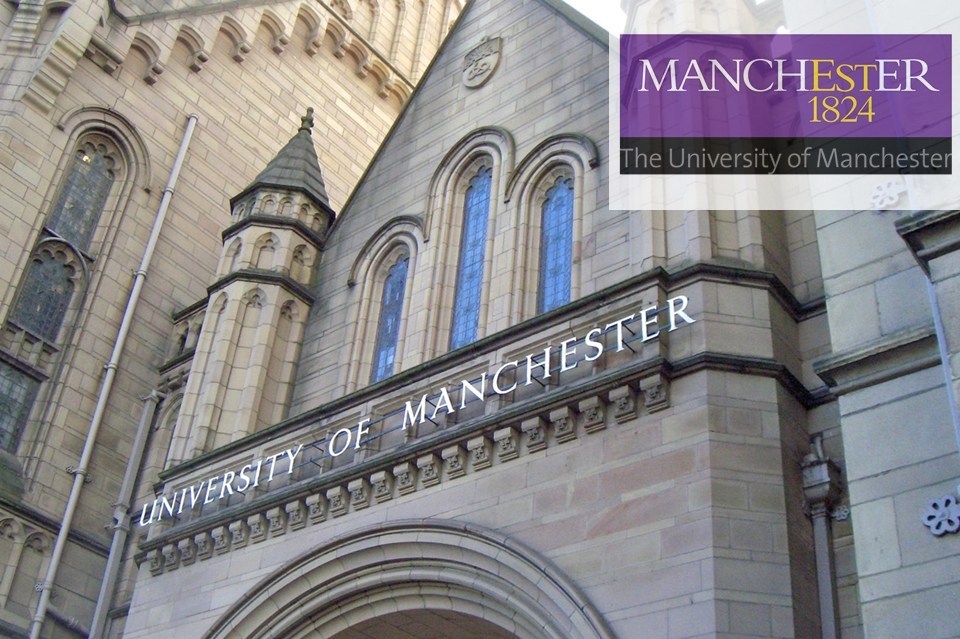PhD Physical Geography
PhD Physical Geography will allow you to benefit from the supervision of world-leading academics that have very strong reputations for research quality.
The University of Manchester is one of the best places in the world to study physical geography, and our department has a global reputation for its research and teaching.
In the UK's most recent Research Excellence Framework (REF 2014), 94% of our outputs were considered internationally recognised, with an exceptionally high proportion (65%) judged to be internationally excellent or world-leading.
Our physical geography staff members hold editorial positions with leading research publications, including major journals such as Journal of the Geological Society, Geoarchaeology and Transactions of the Institute of British Geographers and also serve on various panels of the UK Natural Environmental Research Council (NERC).
In addition, there are two research groups specialising in physical geography: Environmental Processes, and Quaternary Environments and Geoarchaeology.
The work of the Environmental Processes research group includes the analysis of environmental processes at a range of spatial scales and geographical locations, but particularly in upland and urban environments. Fundamental and applied research is supported by the Research Councils and a range of government and non-government agencies, including DEFRA, DTI, UKCIP, Environment Agency, Natural England and Moors for the Future.
The Quaternary Environments and Geoarchaeology research group is particularly interested in the analysis of the response of geomorphological systems and ecosystems to global climate change. This includes the study of glaciers, rivers, lakes, deserts and high mountain terrains, as well as paleoecology, geochemistry and a range of geochronological applications. This research involves work throughout the world, including the Arctic, British Isles, Mediterranean, Himalayas, North America, and Africa. Research is funded by various bodies, including the Leverhulme Trust, NERC, the Royal Society and the Royal Geographical Society.
Explore our research groups to find out more about the specialisms available at Manchester, and the academics who are keen to supervise in each area.
Environmental Processes
Quaternary Environments and Geoarchaeology
You can find out more about our academic staff and their research specialisms on our People page .
Recent PhD graduates have been appointed to positions at leading universities around the world, while others now work in government agencies and research institutes as well as conservation organisations. Many graduates have gone on to work in environmental consultancy in both the public and private sectors. Our graduates also have a strong track record in the energy and mining sector, including renewable energy, oil, gas, aggregates and minerals.
Intakes
- Sep
Application Processing Time in Days: 20
Minimum English Language Requirements
| English Level Description | IELTS (1.0 -9.0) | TOEFL IBT (0-120) | TOEFL CBT (0-300) | PTE (10-90) | |
|---|---|---|---|---|---|
| Expert | 9 | 120 | 297-300 | 86-90 | |
| Very Good | 8.5 | 115-119 | 280-293 | 83-86 | |
| Very Good | 8 | 110-114 | 270-280 | 79-83 | |
| Good | 7.5 | 102-109 | 253-267 | 73-79 | |
| Good | 7 | 94-101 | 240-253 | 65-73 | |
| Competent | 6.5 | 79-93 | 213-233 | 58-65 | |
| Competent | 6 | 60-78 | 170-210 | 50-58 | |
| Modest | 5.5 | 46-59 | 133-210 | 43-50 | |
| Modest | 5 | 35-45 | 107-133 | 36-43 | |
| Limited | 4 | 32-34 | 97-103 | 30-36 | |
| Extremely Limited | < 4 | < 31 | < 93 | < 30 |
- Course Type: Full Time
- Course Level: Doctoral Degree/PhD
- Duration: 03 Year
-
Total Tuition Fee:
57000 GBP
Annual Cost of Living: 9207 GBP
Application Fee: N/A
Similar Programs
- PhD Translation and Intercultural Studies at The University of Manchester
- PhD Sociology at The University of Manchester
- PhD Sociology at The University of Manchester
- PhD Social Statistics at The University of Manchester
- PhD Social Statistics at The University of Manchester
- PhD Social Anthropology with Visual Media at The University of Manchester

